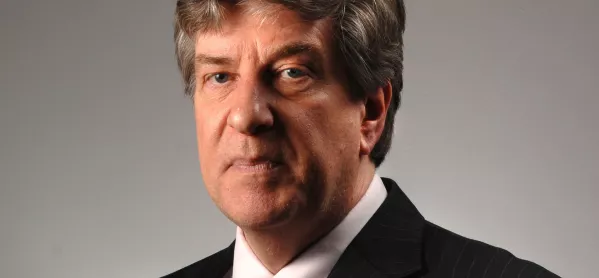Trusts should not view acquiring a larger number of schools as a means to safeguard them against financial pressures, a former schools commissioner has warned.
In an exclusive interview with Tes, Sir David Carter said that expanding multi-academy trusts (MATs) as a way of balancing the books is not a catch-all solution, especially when some are already in poor financial health.
“I think some [MATs] are seeing a need to grow to make themselves more structurally resolute, but growing a trust doesn’t make it more sustainable automatically.
“We need to be careful not to fall into the trap of saying that small trusts cannot be successful and sustainable,” he said.
The government’s latest academisation push has ground to a legislative halt amid political chaos, which has led to the announcement this week of the fifth education secretary to be appointed this year.
The tumult has resulted in uncertainty over the future of the Schools Bill, written off the back of the White Paper that set out the 2030 academy target, as it waits for a third House of Lords reading.
“The most important indicator of financial health in a school or a trust is based upon the percentage of general annual grant (GAG) funding that is spent on staffing - ideally it really needs to be at or below 80 per cent - but there are trusts spending significantly more than that,” said Sir David.
“Many schools started to think earlier this year whether it is better to get moving, given the 2030 target, and start talking to trusts before waiting to be told which trust might be the right one for them,” he said.
“The loss of that policy statement in the Schools White Paper means it’s now harder to use the argument that the government might tell us what to do.”
Sources close to discussions over the future of the bill under former prime minister Liz Truss’ government told Tes last month that the bill could be diluted and partitioned up into pieces of essential legislation or scrapped entirely.
The former schools commissioner added, however, that the situation fosters a chance for trusts to market themselves to schools as potential suitors.
“The onus is now on trusts to build a much more compelling argument as to why a good school should join them and the trusts that are getting those messages right are seeing schools asking to join them because they recognise that there is a shared ethos and common values,” he said.
Outside impending teacher strikes, looming questions over policy progress and a brand new education team, school leaders are still overwhelmed by the challenge of keeping schools financially afloat.
As new prime minister Rishi Sunak takes the helm, Sir David said the economic outlook for schools is as challenging as he can remember in his 40-year career in the sector.
“Funding is really, really tough - probably as tough as I’ve ever seen it. It’s cut to the bone,” he said.
“Heads are looking to preserve the basic function of having enough teachers to teach the number of classes on the timetable and cash is tight for additional strategies for levelling up or closing the gap strategies.
“There are some really stark decisions facing headteachers about how they cut their cloth,” he added.




